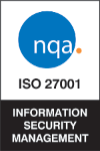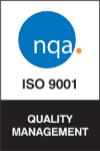Recognition is one of those things we think is quite easy to do in reward. Put a formal company scheme in place, give it a cheesy name and Bob’s your uncle – we have recognition! But, where’s the creativity in that? And more importantly, how can you be sure it is meaningful to your people and recognising them in a way that drives performance and delivers value? In my experience, recognition schemes that think a little bit outside the box, and are well communicated can be the icing on the cake for reward.
Recognition toolkit
Outside pay and bonus awards, it’s at the individual and team levels where the greatest impact of non-financial recognition can be made on a daily basis. At an individual level, the most powerful recognition is readily available. I ran a workshop recently for a high street retailer; when I asked its employees, ‘what could your manager do to recognise you?’ the common answer was a simple ‘thank you.’ Some managers are naturally comfortable with doing this and will readily show their appreciation of a colleague. Others need a little help and inspiration to recognise others’ efforts.
A recognition toolkit is something I have helped many of my clients introduce. It doesn’t have to be anything too elaborate. It can just be guidance, for managers, on how and when to recognise their team, along with some ideas of what they can do, and how. Here are a few suggestions:
- Recognition scratch cards: handed out as a thank you with a random chance of receiving vouchers, leaving work an hour early, taking an extra-long lunch break
- Thank you cards: an opportunity to write a thank you message
- Handmade coupons: inviting the recipient to coffee or to leave work early
- Invitations: to a senior team meeting or company event they wouldn’t normally attend
- An email from the CEO: recognising the individual personally
Recognition at a team level shouldn’t be any different – just on a slightly larger scale. Examples for recognition of a team include taking time to go to lunch together or something to share such as chocolates or ice cream. It’s important to remember that team recognition should be wholly inclusive and sometimes requires a little bit more thought.
Sharing in the success
Company wide recognition is typically a more formal approach, giving the opportunity for anyone in the organisation to be recognised. This can be done through managerial or peer nominations and will usually impact a small number of individuals within the business. For the recognised individuals, winning an award on a company basis can be a very powerful experience. It can be made even more powerful by extending the recognition to an individual’s team. One of my clients does this. So when an individual wins a company award, they send a box of chocolates to the team – one person’s recognition becomes a motivational and proud moment for their whole team.
Putting it into practice
So, how do you know what will work best for your organisation? The answer is to ask your employees. Focus groups are a very useful way to find out what your staff really value. By engaging with them, you gain valuable insight into how they would like to be recognised, but you also get buy in to the process. Here are some points to get you started:
- Do your people understand what recognition activities you currently have in place?
- Which ones do they value the most and least, and why?
- What type of recognition would they like?
- What is their experience of recognition – either in your organisation or elsewhere – and how did it make them feel?
Communication
Communicating recognition is not something many companies do well. It takes time and effort to plan, but sharing best practice and highlighting successes across the business will help to reinforce a recognition culture. Company newsletters, team briefings and intranet announcements are really easy ways to recognise role model behaviours and team or individual achievements.
Recognition works best when it operates at all levels (individual, team and company), is regularly communicated across the business, and is both informal and formal. It should be done in a timely way, with sincerity and be meaningful to your people.
Remember, recognition should be: at the right time, in the right way, for the right reasons, by the right individual.











